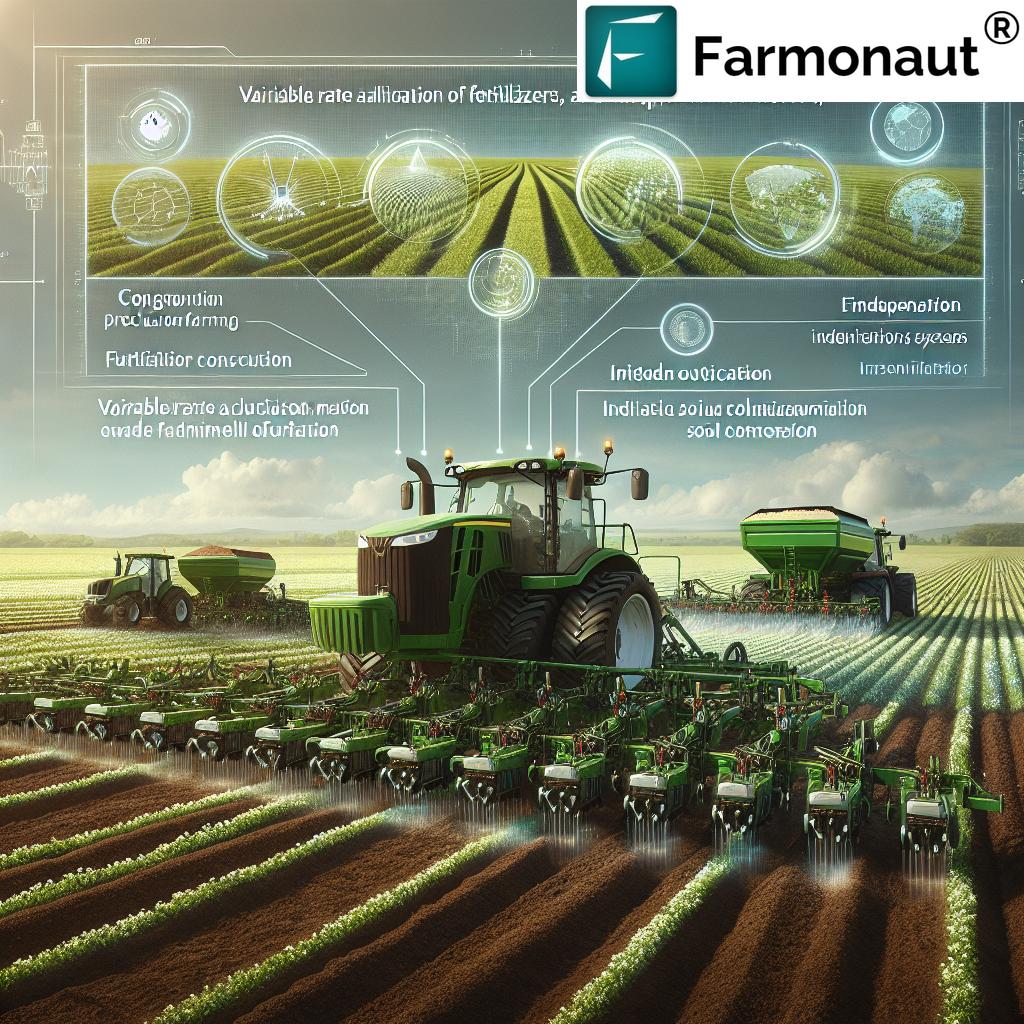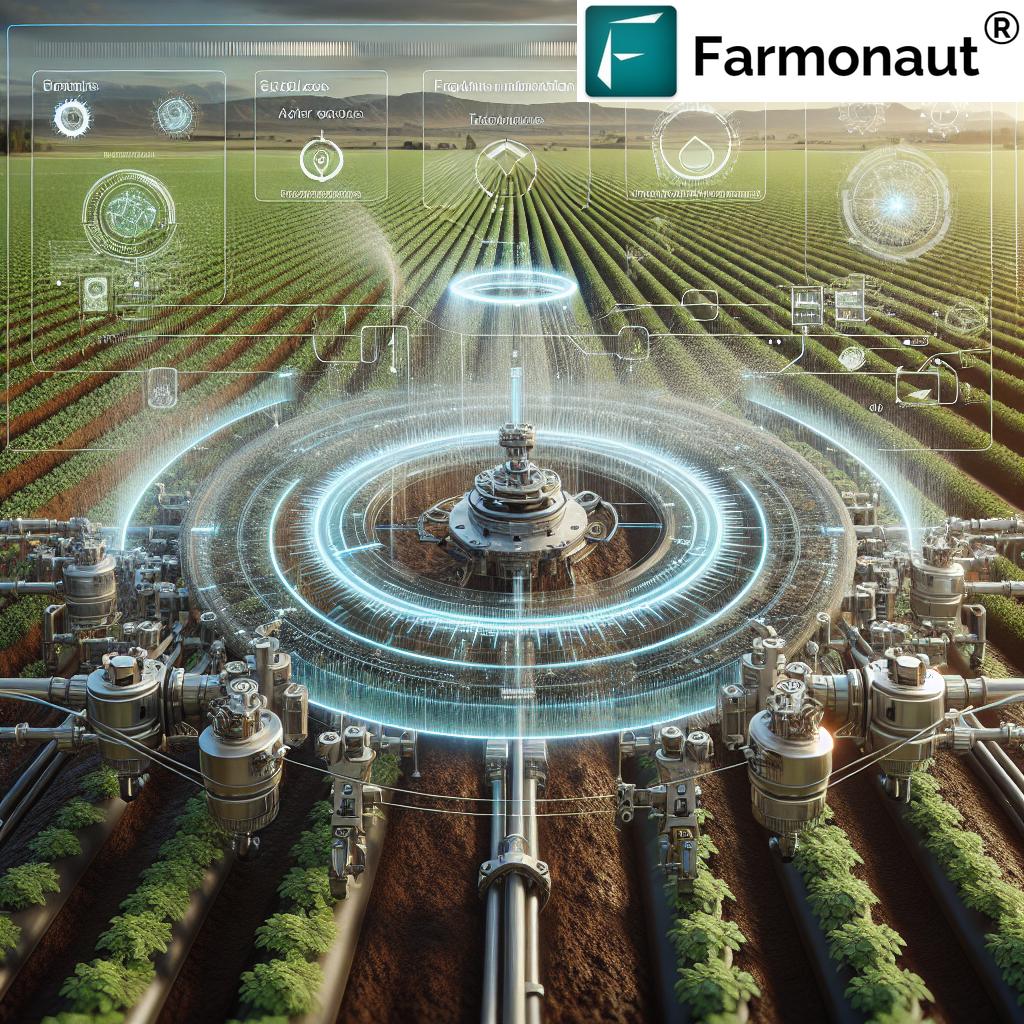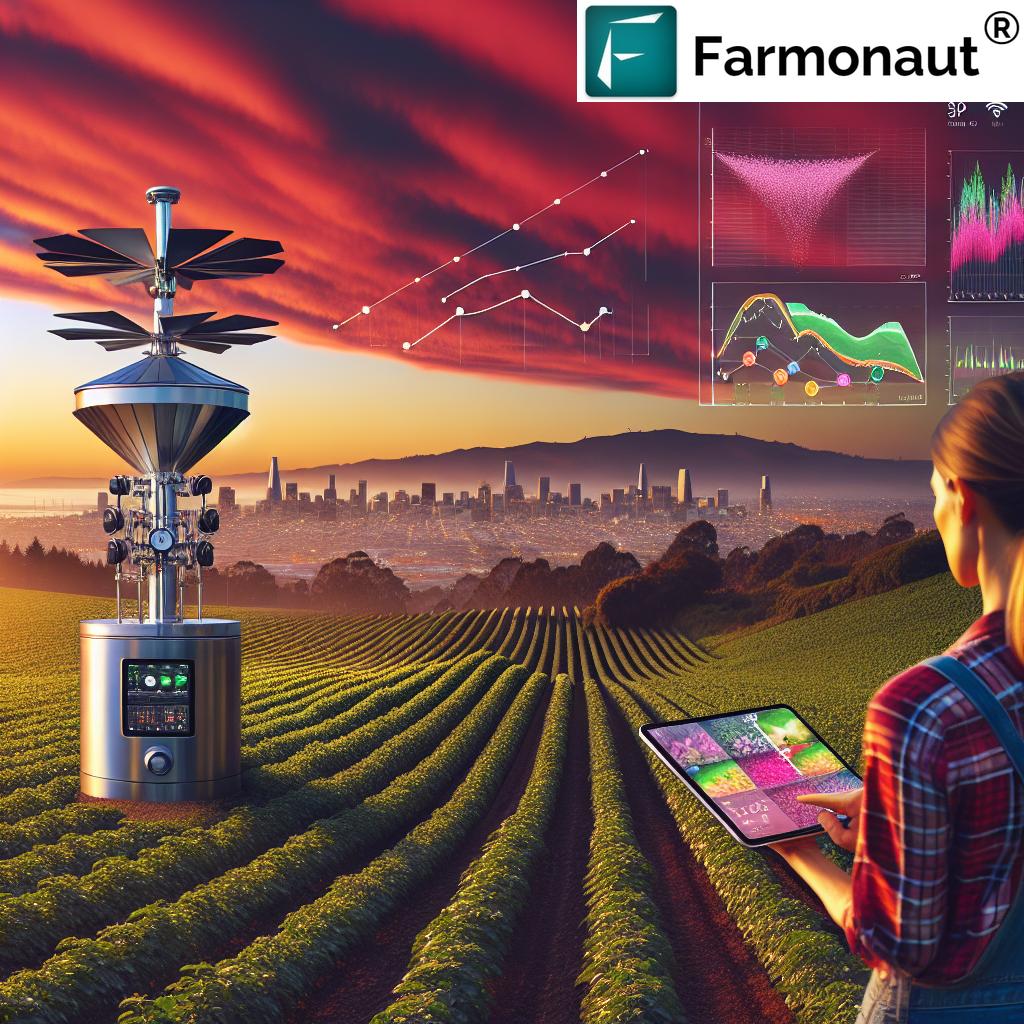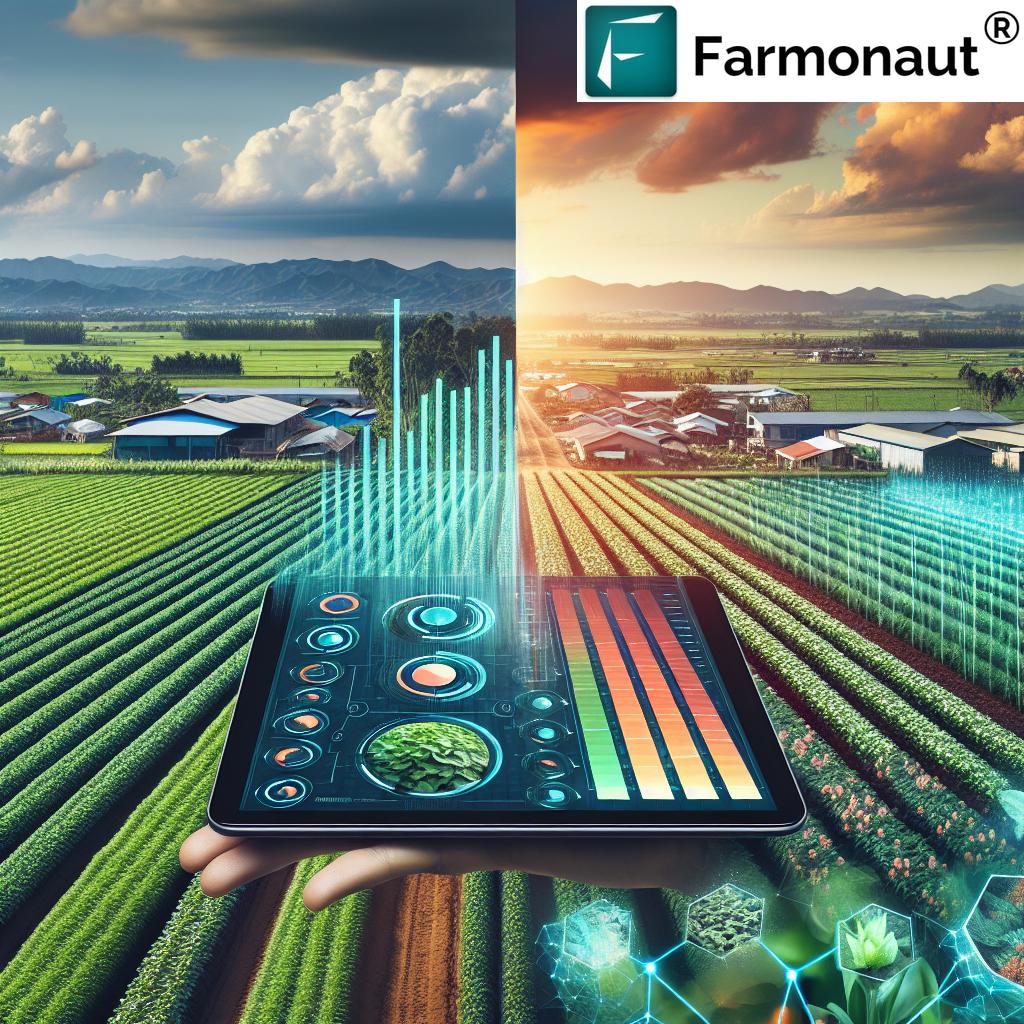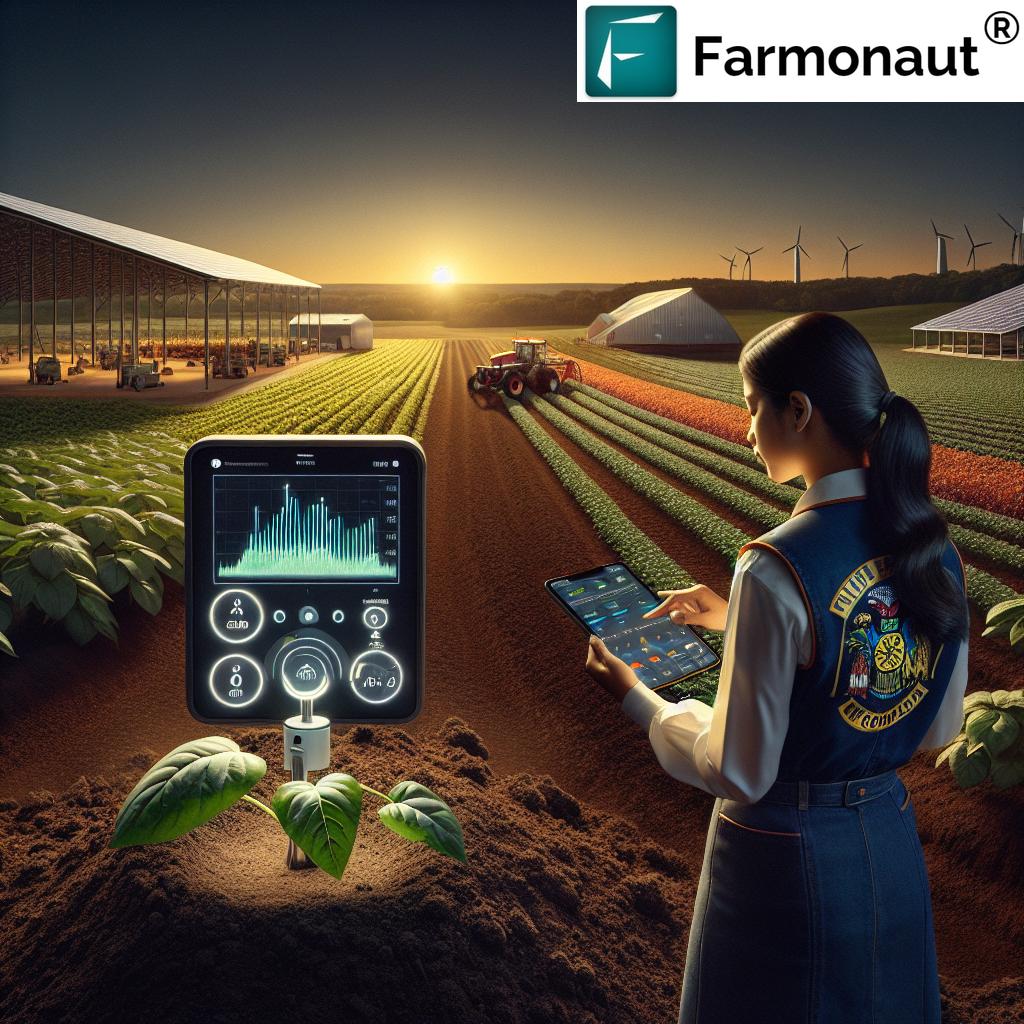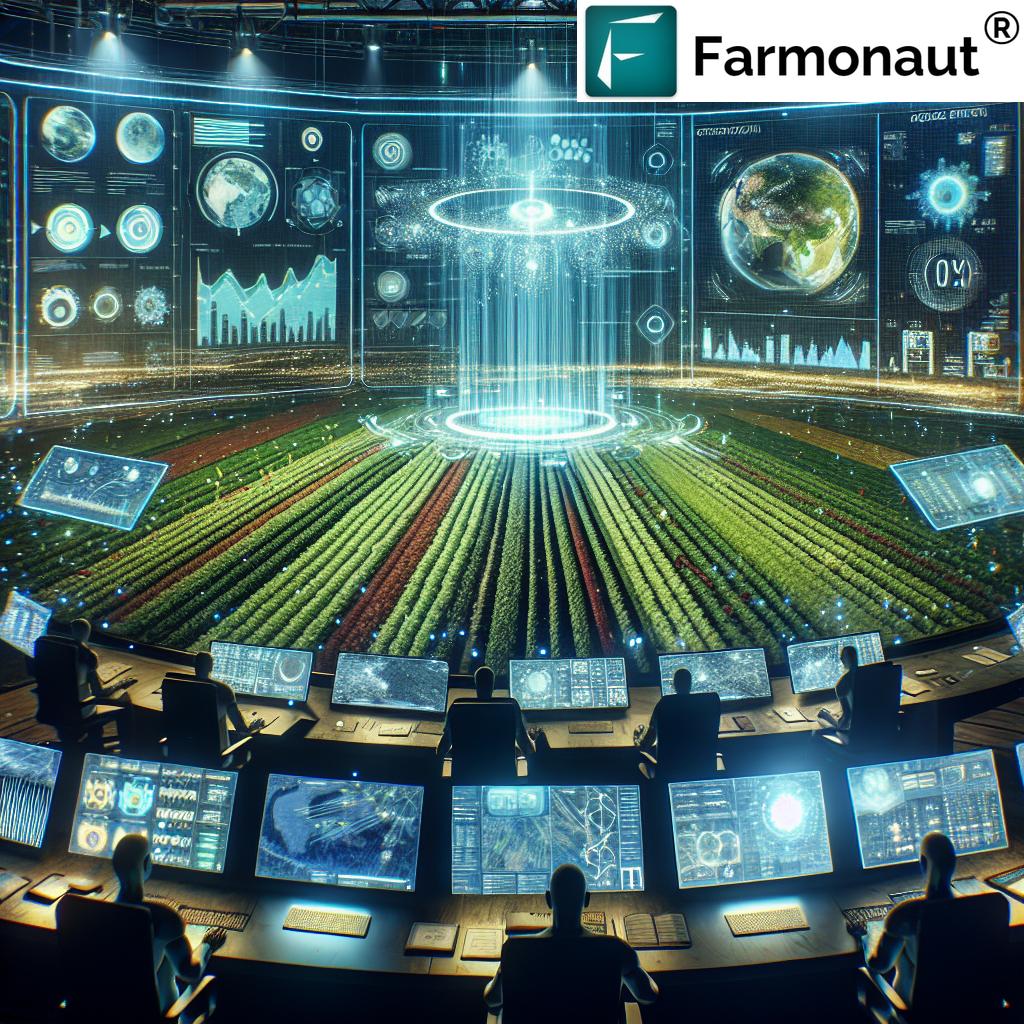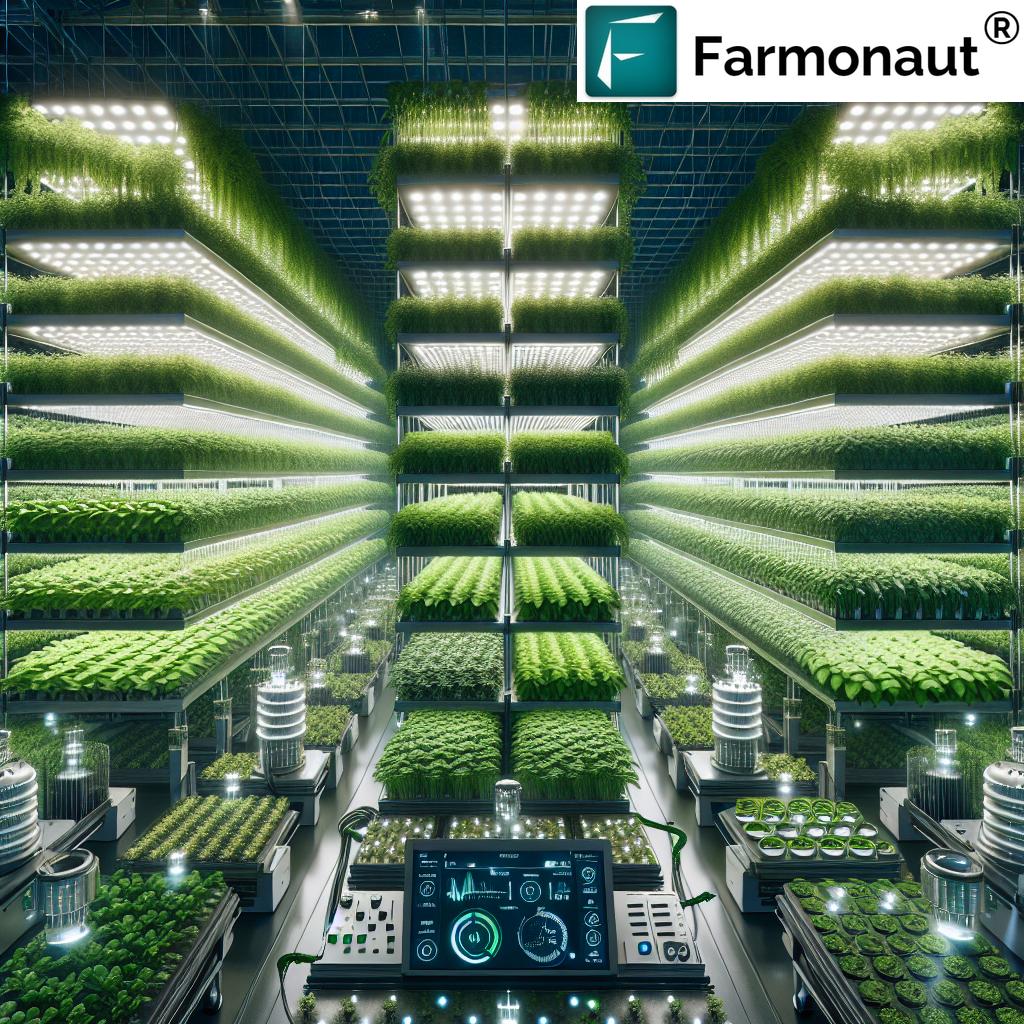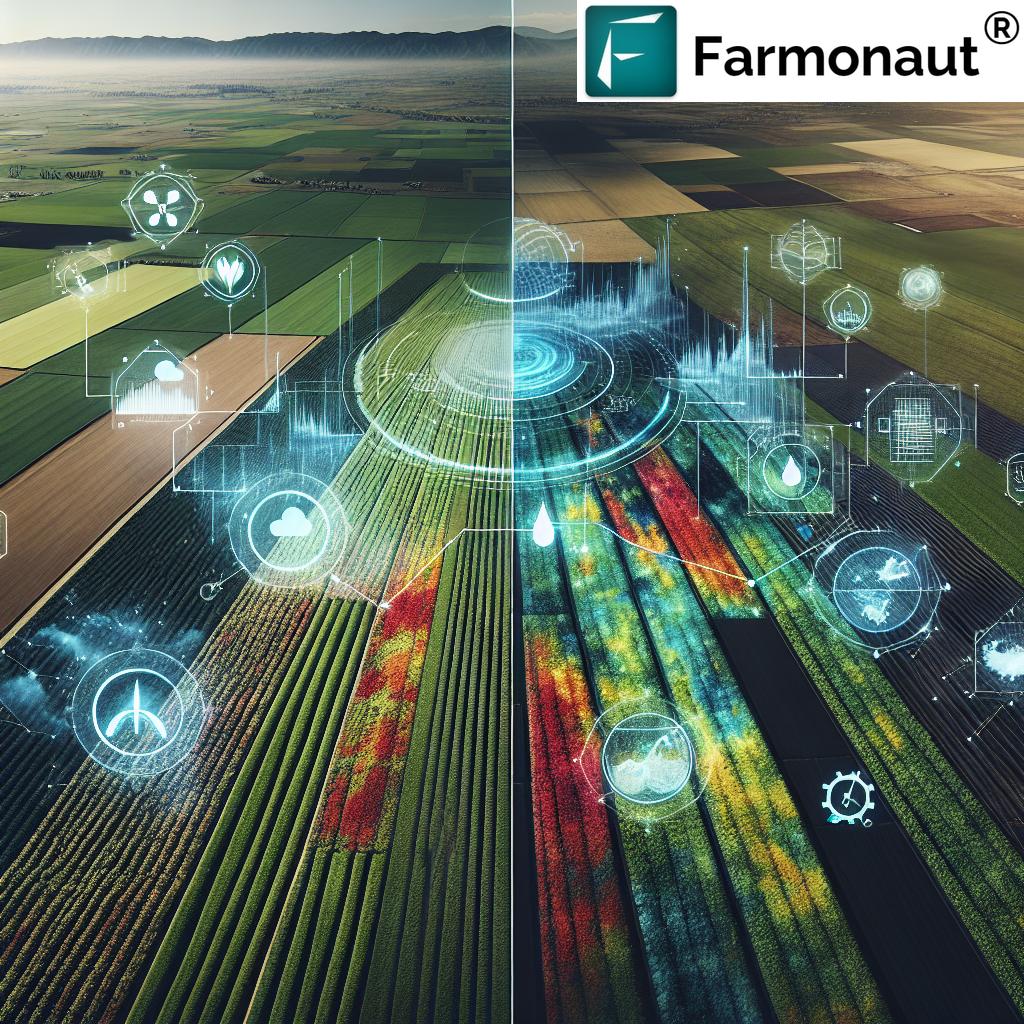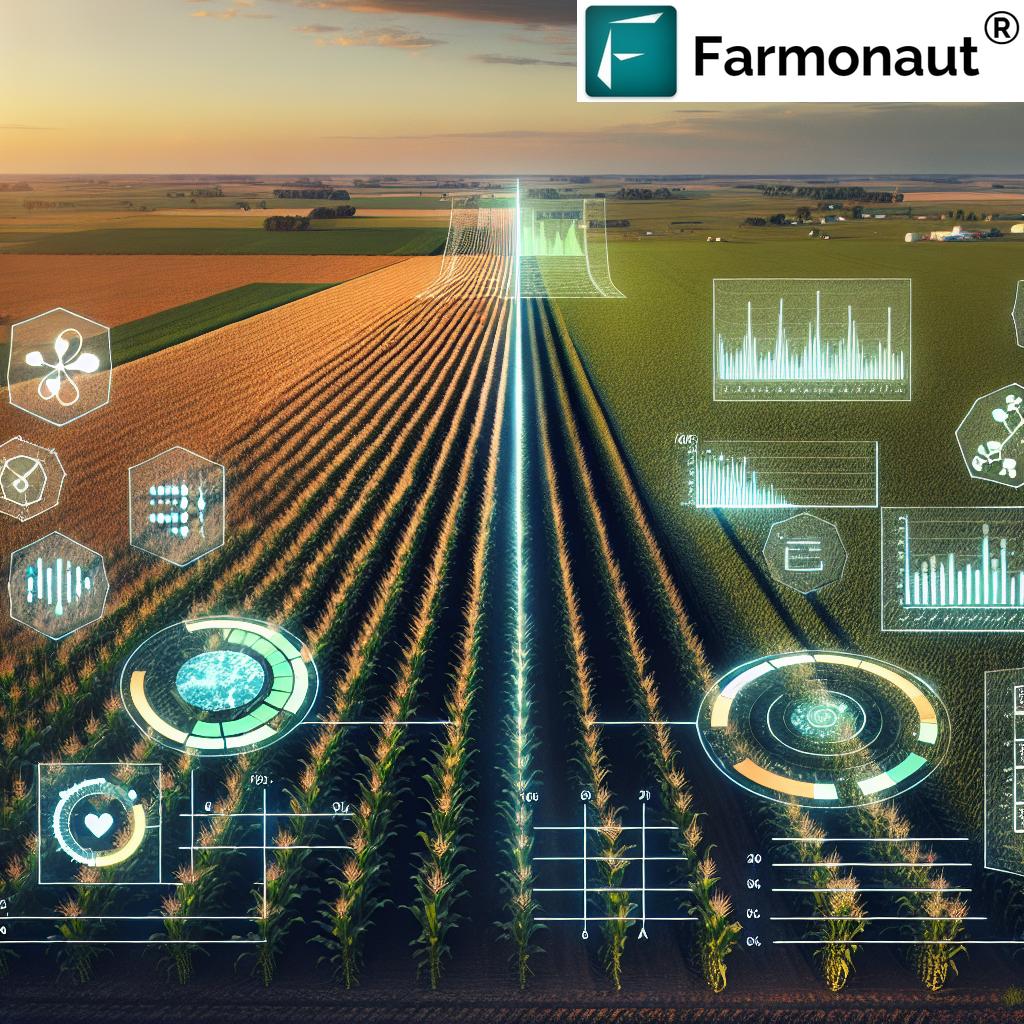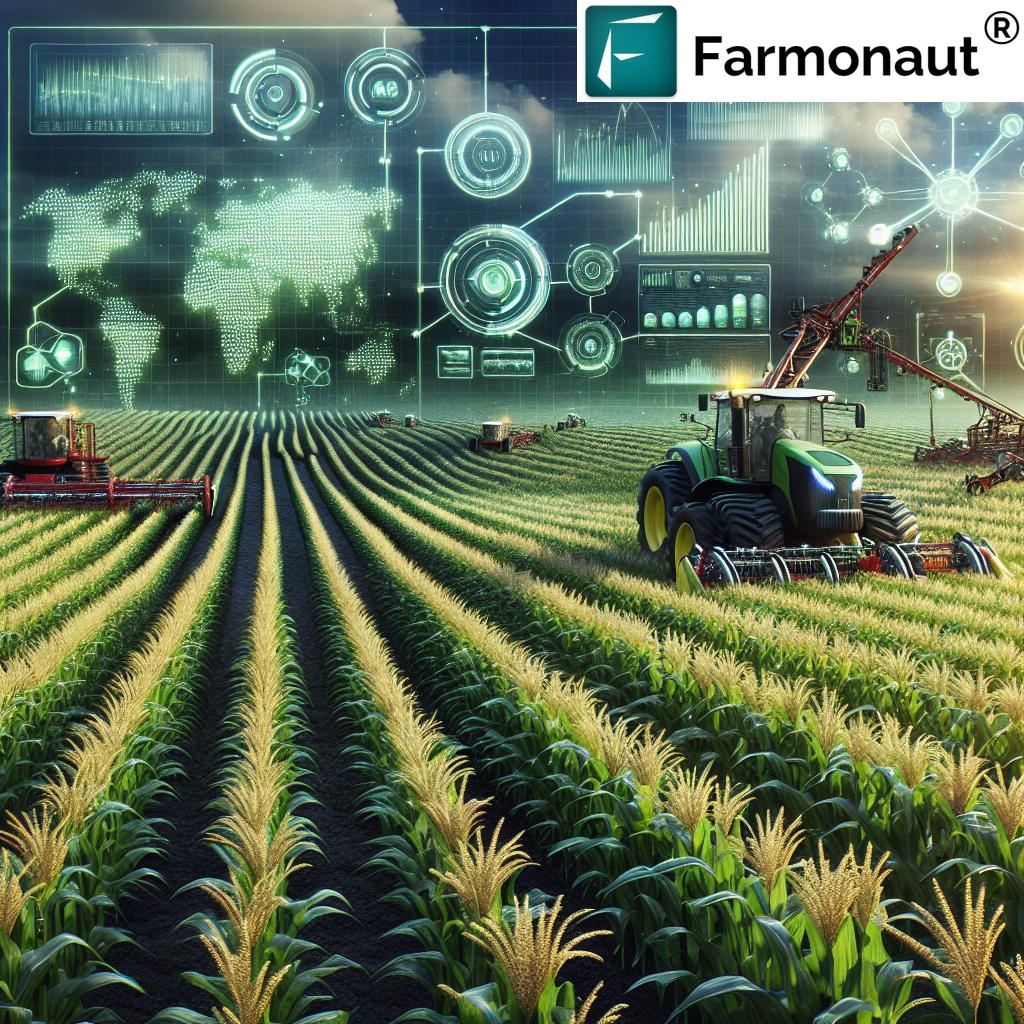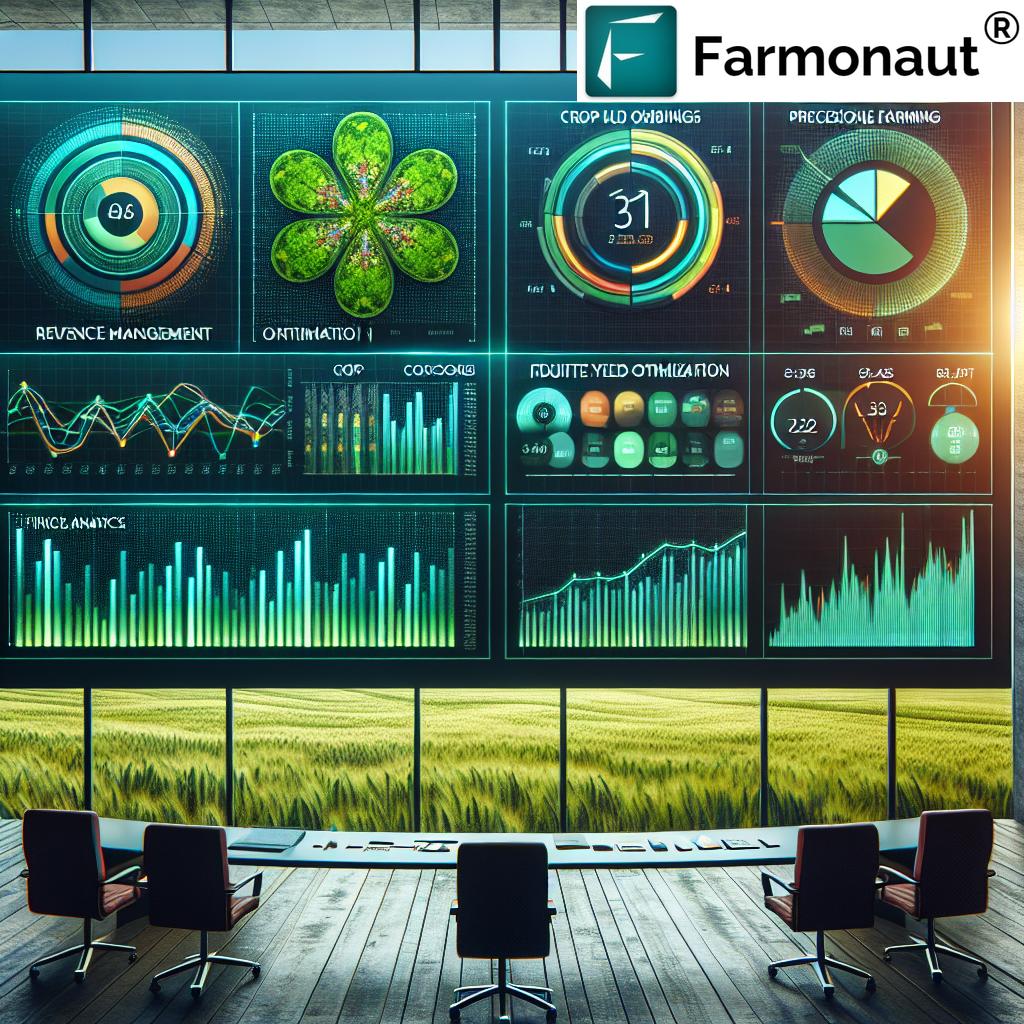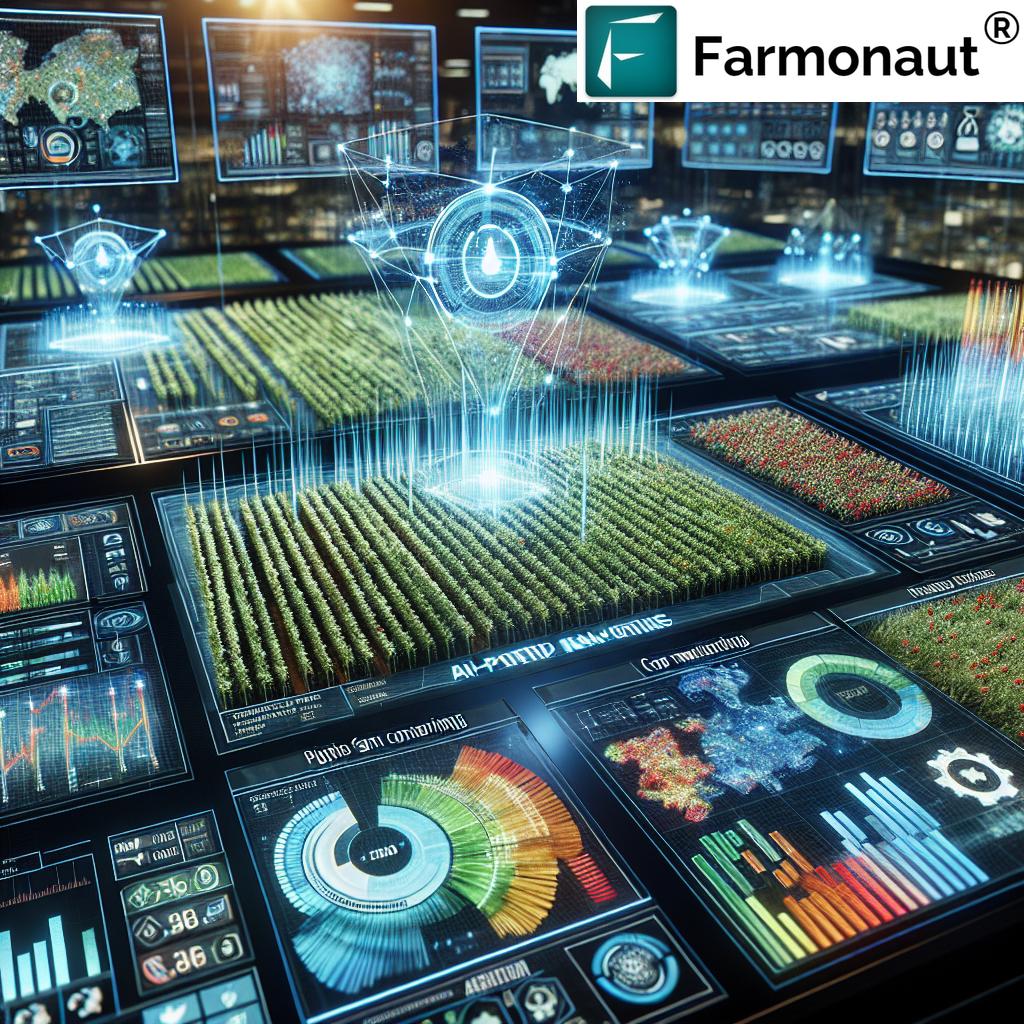10 Precision Farming Equipment Tech That Will Blow Your Mind
Table of Contents
- Introduction: The Precision Farming Revolution
- Trivia: Field Overlap & GPS Tractors
- Precision Farming Equipment: Leading Technologies
-
- 1. GPS-Guided Tractors
- 2. Precision Planting Implements
- 3. Smart Irrigation Systems
- 4. Drone Technology for Crop Monitoring
- 5. Electric and Autonomous Farm Machinery
- 6. Precision Sprayers
- 7. IoT Sensors & Farm Management Software
- 8. Robotic Farm Assistants
- 9. Smart Harvesting Equipment
- 10. Variable Rate Technology (VRT)
- Farmonaut: Satellite-Powered Precision Farming
- Comparative Feature Table: Top 10 Precision Farming Tech
- Trivia: Smart Irrigation Water Savings
- Frequently Asked Questions (FAQ)
- Conclusion: Future-Proofing Agriculture with Innovation
Precision farming, also known as precision agriculture, is a modern farming practice that leverages advanced technology, data analytics, and innovative equipment to help farmers monitor and manage field variability in crops. The adoption of precision farming equipment, such as GPS-guided tractors, smart irrigation systems, autonomous machinery, and powerful sensors, is fundamentally transforming agriculture.
This revolution allows us to optimize field operations, reduce resource waste, promote crop health, and ensure environmental sustainability through data-driven decisions. In this comprehensive guide, we explore the top 10 technological marvels in precision farming that will truly blow your mind—from smart equipment to precision analytics—and unveil how Farmonaut is empowering farmers with affordable, scalable, and accessible agri-solutions across the globe.
“Modern GPS-guided tractors can reduce field overlap by up to 90%, saving significant fuel and time during planting.”
Precision Farming Equipment: 10 Technologies Transforming Agriculture
Let’s delve into the most advanced precision farming equipment accelerating modern agriculture. From GPS-based navigation to AI-powered analytics, each tech enables us to optimize resources, maximize yields, lower costs, and minimize environmental impact.
1. GPS-Guided Tractors: Precision Navigation at Its Best
GPS-guided tractors are at the forefront of precision farming equipment. By harnessing satellite signals, these tractors accurately steer along precisely mapped paths, transforming field operations such as planting, fertilizing, and harvesting.
- Navigation: Automatic steering reduces overlap and gaps in field coverage.
- Efficiency: Lower fuel consumption and soil compaction due to optimized routes.
- Cost Savings: Decreases time and resource use, supporting sustainable farming practices and increased operational efficiency.
Tools like GPS-based guidance are vital for uniform growth and optimal use of land—even in complex field shapes.
2. Precision Planting Implements: Seed Placement Redefined
Precision planting implements utilize digital technology and smart sensors to accurately deliver seeds at the right depths and intervals. This ensures every seed has optimal chance for robust germination and healthy growth.
- Seed Saving: Minimizes waste by adjusting placement according to soil conditions.
- Uniform Stands: Promotes uniform crop emergence—critical for maximizing yield.
- Customization: Enables zone-specific planting for different crops or soil types.
Deploying precision planting equipment leads to efficient resource use and higher crop performance.
3. Smart Irrigation Systems: Water Management for Maximum Yields
Smart irrigation systems combine sensors, wireless networks, and automated controls for real-time water management. By monitoring soil moisture and weather data, we deliver the right amount of water directly to each crop zone, minimizing losses and maximizing resource efficiency.
- Precision: Reduces runoff and evaporation by targeting the plant root zone.
- Optimization: Dynamic irrigation scheduling tailored to plant needs improves yields and reduces water waste.
- Remote Control: IoT integration enables management from anywhere, anytime.
Water conservation is crucial in sustainable agriculture. Upgrading to smart irrigation empowers farmers to save water and boost crop health.
4. Drone Technology for Crop Monitoring: Eyes in the Sky
Drone technology for crop monitoring offers aerial insights that traditional scouting simply can’t match. Advanced drones equipped with multi-spectral sensors, RGB, and thermal cameras provide detailed field images to help us monitor crop health and identify issues early.
- Rapid Assessment: Scan entire fields in minutes, detecting pests, diseases, or water stress before damage becomes critical.
- Precision Mapping: Generate variable rate application maps for fertilizers, pesticides, or water.
- Targeted Interventions: Reduce the need for blanket chemical applications—apply only where needed.
Integrating drones in modern farming operations supports data-driven decisions and smarter use of inputs, all while minimizing the environmental impact of farming.
5. Electric and Autonomous Farm Machinery: Farming in the Future
Electric tractors and autonomous farm machinery represent a leap towards eco-friendly and efficient farming. By replacing traditional diesel engines and manual controls with electric drives and smart automation, these machines are outstanding for reducing emissions, operational costs, and labor dependency.
- 24/7 Operations: Self-driving tractors and robotic harvesters can run continuously, addressing labor shortages and maximizing efficiency.
- Precision: Consistent, reliable performance for accurate planting, spraying, and harvesting.
- Environmental Benefits: Electric-powered machinery is cleaner and quieter.
The fusion of autonomy and electrification signals a new era in agricultural machinery, propelling precision farming equipment into a high-tech, sustainable future.
6. Precision Sprayers: Targeted Chemical Application
Precision sprayers use variable rate technology, GPS-guidance, and section/nozzle control to apply fertilizers, herbicides, and pesticides only where and when required.
- Cost Reduction: Prevents over-application and reduces waste by focusing on precise field zones.
- Environmental Protection: Lowers chemical runoff and environmental impact.
- Efficient Control: Integrates with mapping and sensor data for real-time rate adjustments.
By minimizing overlap and precisely targeting inputs, precision sprayers are central to environmentally responsible and profitable farm management.
7. IoT Sensors and Farm Management Software: Digital Transformation in the Field
IoT sensors in agriculture collect critical data on soil moisture, nutrient status, weather conditions, and crop health. Integrated with powerful farm management software, these datasets help farmers make automated, analytics-driven decisions.
- Remote Monitoring: Access real-time data about every aspect of the field—from pH to pest alerts—directly from your phone or computer.
- Automated Alerts: System notifies users of critical conditions, supporting proactive interventions.
- Resource Optimization: Adjust planting, watering, and spraying based on field needs—saving time and money.
The integration of sensors and software is the digital backbone of all precision farming equipment, transforming information into actionable intelligence for sustainable agriculture.
Explore affordable, highly scalable digital crop monitoring and resource optimization tools from Farmonaut:
Learn More about Large Scale Farm Management Solutions.
8. Robotic Farm Assistants: Automating Repetitive Tasks
Robotic farm assistants are AI-powered machines that efficiently handle repetitive and labor-intensive agricultural tasks like weeding, planting, and harvesting.
- High Precision: Computer vision enables identification of crops vs. weeds, ensuring only unwanted plants are removed.
- Labor Savings: Automation dramatically reduces manual labor needs and associated costs.
- Sustainability: Some advanced robots mechanically weed crops, minimizing the need for chemical herbicides.
Robotic assistants are redefining efficiency and accuracy, directly supporting sustainable farming practices and improved yields.
9. Smart Harvesting Equipment: Maximizing Returns at Harvest
Smart harvesting equipment leverages automated threshing, yield monitoring, and real-time moisture sensing to optimize the final stage of crop growth.
- Efficiency: Harvest crops at their prime for best quality and minimum loss.
- Data Collection: Collect yield and quality data during harvest, which informs future planting and input decisions.
- Reduced Losses: Automation guarantees fewer grains lost in the field, driving profitability.
These advanced harvesters are essential for maximizing profits and efficiency in modern agriculture.
Monitor and analyze your crop health through satellite-based, real-time yield and moisture tracking using Farmonaut:
Crop Plantation and Forest Advisory.
10. Variable Rate Technology (VRT): Input Optimization for Every Zone
Variable rate technology (VRT) revolutionizes input efficiency by enabling variable application rates of fertilizers, pesticides, and seeds according to zone maps or real-time sensor feedback.
- Efficiency: Input only what crops in each zone require—no more, no less.
- Yield Optimization: Boost performance in nutrient-poor regions without over-applying in rich zones.
- Environmental Safeguards: Greater protection of the surrounding ecosystems by minimizing unnecessary chemical use.
VRT isn’t just a single tool—it’s a mindset enabled by advanced analytics and digital field mapping, now powered by solutions like Farmonaut’s satellite imagery-driven analytics.
Farmonaut: Satellite-Powered Precision Farming for Everyone
Farmonaut is reshaping the landscape of precision farming equipment for users everywhere. Unlike conventional hardware-based solutions, Farmonaut leverages satellite imagery and artificial intelligence to deliver actionable insights for individual farmers, agribusinesses, governments, and corporates.
With support for Android, iOS, web, and API interfaces, our platform helps you monitor crop health, track soil moisture, and receive personalized, AI-powered farming advisories in real time—enabling smarter interventions with a few clicks. Farmonaut also offers blockchain-based product traceability, fleet management, and even carbon footprint tracking—critical for those seeking sustainable farming practices.
-
Real-Time Crop Health Monitoring: Satellite data pinpoints issues—water stress, pest infestation, nutrient deficiencies—quickly & efficiently.
Try this for your fields with the Farmonaut Web & Mobile Apps. -
Blockchain Traceability: Ensure end-to-end supply chain transparency for your products.
Learn more about product traceability solutions. -
Resource Management: Minimize waste and optimize inputs.
Automate fleet tracking and reduce fuel & labor with fleet management tools. -
Environmental Sustainability: Monitor and reduce your carbon impact.
Read more about Farmonaut’s carbon footprinting. -
Bankable Data: Use satellite verification for faster & safer agri-loans and insurance.
Streamline loans and insurance with Farmonaut’s dedicated services.
All API integrations are documented for developers:
API Portal |
Developer Docs
Comparative Feature Table: Top 10 Precision Farming Tech
| Equipment Name | Core Technology | Estimated Yield Improvement (%) | Water/Energy Savings (%) | Suitable Crop Types | Key Benefit |
|---|---|---|---|---|---|
| GPS-Guided Tractors | Satellite-based auto-steering | 8–15 | 7–12 (fuel) | All row and field crops | Reduced overlap, uniform operations |
| Precision Planting Implements | Depth/interval adjusting planters | 10–18 | N/A | Corn, soybean, cotton, grains | Seed savings, improved emergence |
| Smart Irrigation Systems | IoT moisture sensors & automation | 12–20 | 25–35 | Vegetables, orchards, cereals | Major water savings, targeted irrigation |
| Drone Technology for Crop Monitoring | Multi-spectral aerial imaging | 3–10 (via improved detection) | 5–12 (chemical savings) | All major crops | Rapid field diagnostics, intervention mapping |
| Electric & Autonomous Farm Machinery | Electric drives, robotics & AI navigation | 10–15 | 20–30 (energy/labor) | Crops requiring intensive operations | Operational cost saving, 24/7 use |
| Precision Sprayers | GPS, section/nozzle control, VRA | 8–15 | 10–20 (chemicals/fuel) | All sprayed crops | Consistent coverage, less waste |
| IoT Sensors & Farm Management Software | Soil/weather/crop sensors, analytics apps | 6–14 | 10–18 (inputs) | All major food & fiber crops | Data-driven decision making |
| Robotic Farm Assistants | AI, machine vision, robotics | 3–8 | N/A | Vegetables, fruit, row crops | Labor cost saving, precision weeding |
| Smart Harvesting Equipment | Moisture sensors, yield monitors, automation | 6–12 | 5–8 | Grains, corn, soybeans, fruits | Reduced losses, high quality |
| Variable Rate Technology (VRT) | Prescription mapping, real-time sensors | 9–19 | 15–22 | Cereals, oilseeds, row crops | Input efficiency, site-specific management |
“Smart irrigation systems can cut water usage by 30% while maintaining optimal crop growth through precise moisture monitoring.”
Frequently Asked Questions (FAQ)
What is precision farming equipment?
Precision farming equipment refers to technologically advanced tools and machinery designed for accurate, data-driven agricultural operations. Examples include GPS-guided tractors, precision planting implements, smart irrigation systems, drone monitoring, and advanced sensors. These innovations optimize resource use, maximize yields, and minimize waste and environmental impact.
How do smart irrigation systems save water?
Smart irrigation systems use IoT-enabled sensors to monitor real-time soil moisture, weather patterns, and crop status. By delivering water only when and where it’s needed, they reduce runoff and evaporation, often cutting water use by up to 30% while supporting healthy crop growth.
What are the benefits of GPS-guided tractors?
GPS-guided tractors automatically steer along optimized routes, minimizing overlap and missed areas. This precision results in lower fuel consumption, reduced soil compaction, and more uniform planting and harvesting—boosting efficiency, yields, and sustainability.
How does drone technology for crop monitoring work?
Drones equipped with special cameras and sensors provide aerial images and data about crop health, pest presence, and growth stages. This allows for fast field diagnostics, early issue detection, and targeted interventions, supporting higher productivity and reduced input waste.
Can small farms afford precision farming equipment?
While some hardware is expensive, solutions like Farmonaut’s satellite-based platform make precision farming affordable and scalable for farms of all sizes. Minimal hardware and flexible subscriptions make it highly accessible even to smallholders.
What role does Farmonaut play in precision agriculture?
Farmonaut democratizes precision agriculture using satellite imagery, AI, and powerful data analytics. Farmers gain real-time insights into crop health, irrigation, pest threats, and more, directly through mobile and web apps. Blockchain traceability, fleet/resource management, and carbon monitoring further support productivity, trust, and sustainability.
Where can I get more details about Farmonaut products or try the platform?
Visit the Farmonaut App Portal or follow the detailed API developer documentation to integrate advanced precision farming solutions into your operations.
Conclusion: Future-Proofing Agriculture with Precision & Innovation
The adoption of precision farming equipment marks a pivotal step toward next-generation agriculture. By harnessing the combined power of GPS-guided machinery, smart irrigation systems, drone technology for crop monitoring, autonomous farm machinery, variable rate technology, and other advanced tools, we can facilitate higher yields, greater operational efficiency, and uncompromised environmental stewardship.
With Farmonaut’s affordable, scalable technology, precision farming is no longer out of reach for the world’s farmers. From instant crop health monitoring to transparent product traceability and sustainable resource management, Farmonaut empowers us to cultivate smarter, grow more, and safeguard our planet for generations to come.
Ready to experience the benefits of modern precision farming equipment in your fields?
Get started today with the Farmonaut App!





